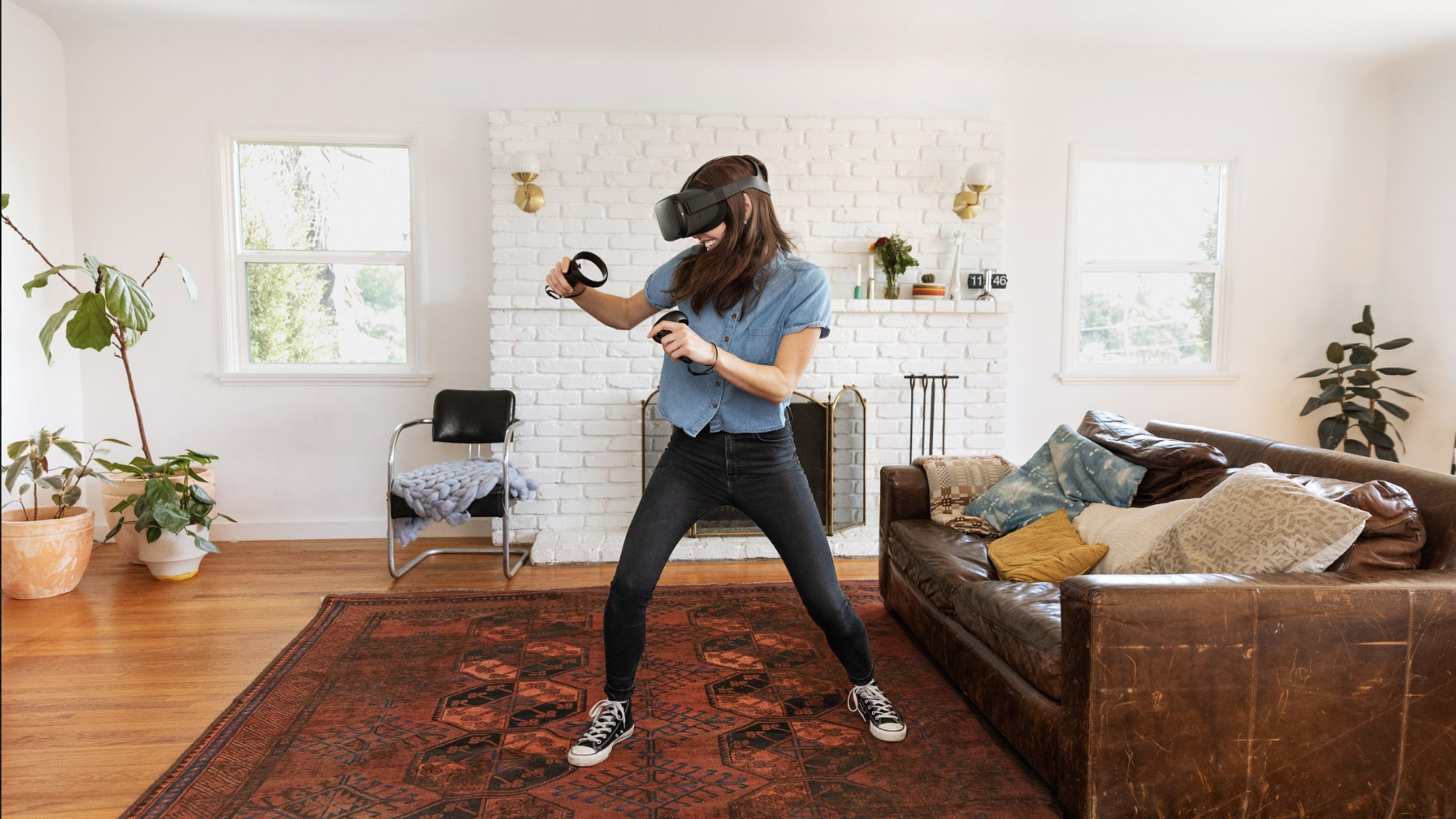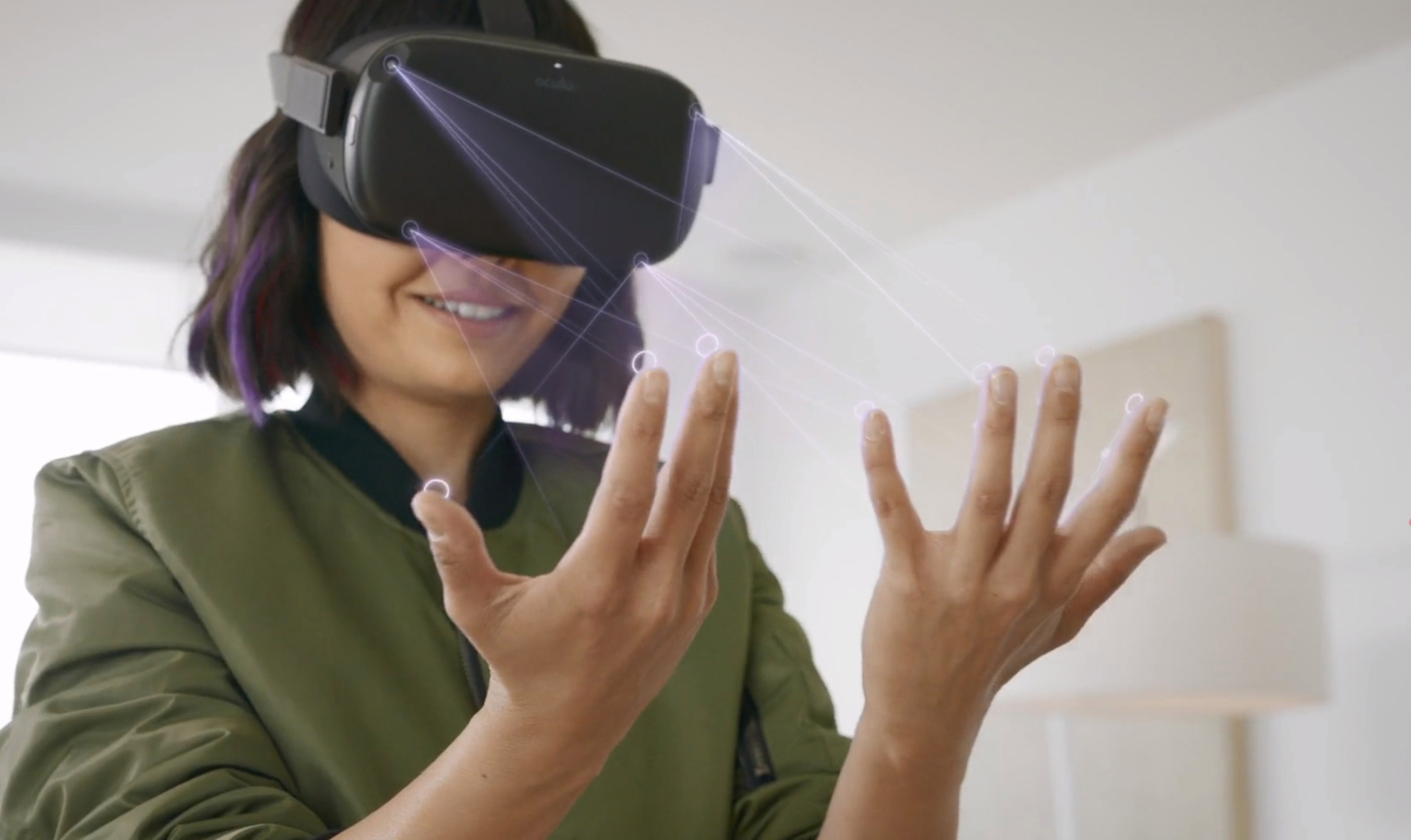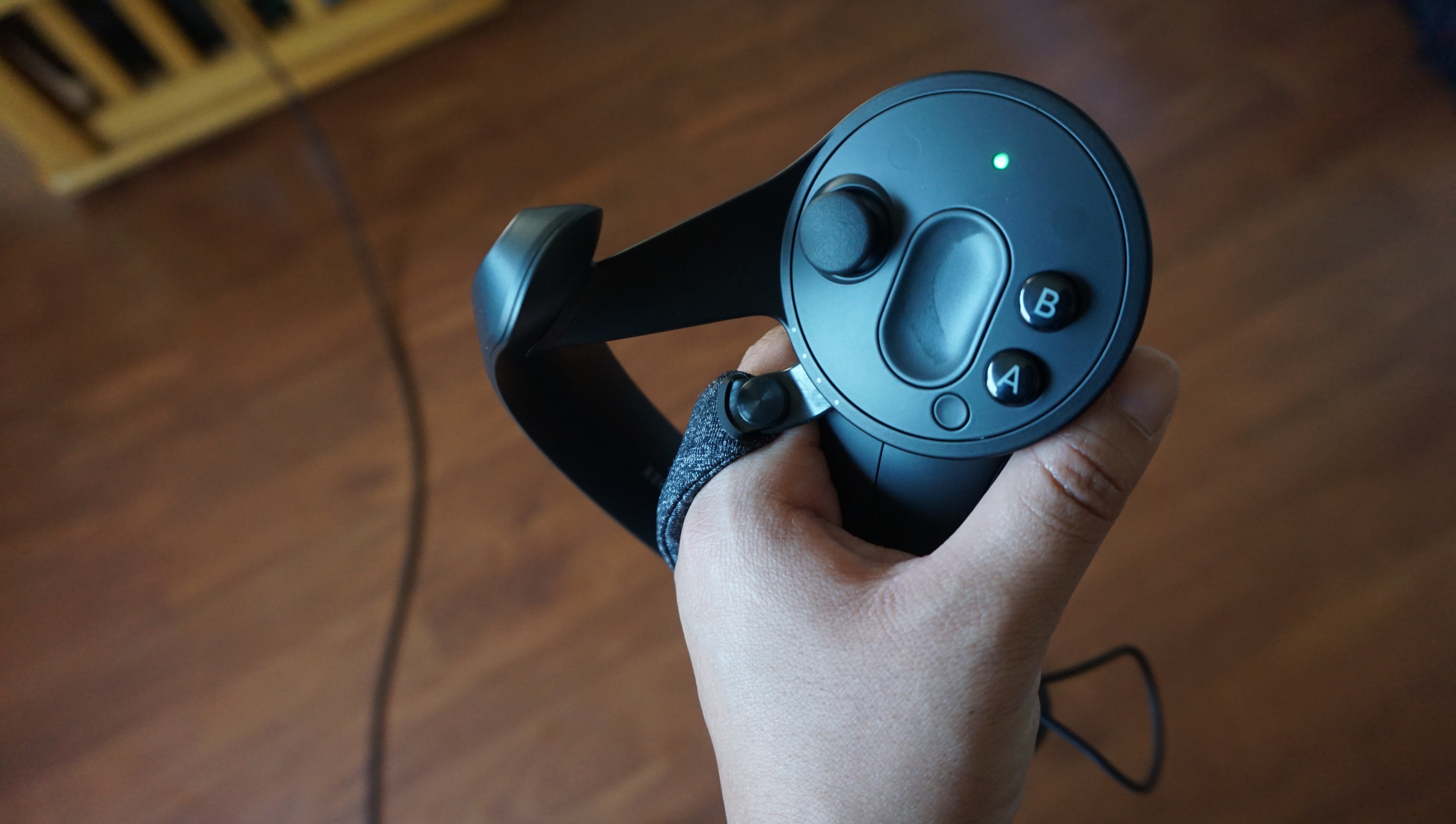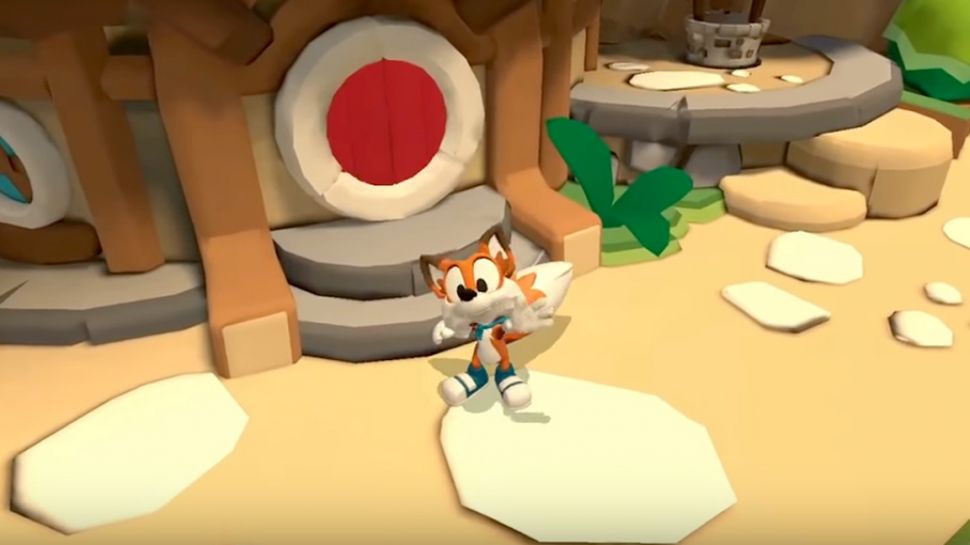
Oculus Quest 2: what we want to see
More games, better controllers and 100% finger tracking all top the list
by Nick PinoIf the rumors are true, we won’t see the Oculus Quest 2 for another few months – October at the earliest and, if the coronavirus pandemic continues for another few months, not until 2021. At least, that’s the latest from a Bloomberg report that gave us our best look yet at Oculus’ next-gen headset.
If we don’t get the Oculus Quest 2 for another year-and-a-half, what could the company do to improve? What steps could it take to make the next Quest the best VR headset ever?
At this point with so much up in the air it's worth exploring every possible avenue Oculus could take with the Quest 2 – from its controllers and display technology, to its software, accessories and games.
With that in mind, we’ve put together a wishlist for the headset by taking some of the loose rumors we’ve already heard and combined them with our thoughts on where VR is heading. It may not be exactly the headset Oculus is putting together, but we're hoping to see at least a few of these suggestions on the OQ2.
Cut to the chase
- What is it? The successor to the Oculus Quest, Oculus’ first stand-alone VR headset
- When is it out? Rumors point to an early 2021 launch date
- What will it cost? TBD, but the Quest had a lot of success at $399 / £399
Oculus Quest 2 release date and price
There’s good news and bad news here. The bad news is that, frankly speaking, we don’t have a firm release date from Oculus yet. The good news is that, based on some reporting by Bloomberg, we have a rough idea of what it could be.
According to industry experts who spoke to Bloomberg, Facebook originally planned on announcing the Oculus Quest 2 at this year’s Oculus Connect. That conference is usually held in late September or early October, but because of the pandemic, it may not take place until 2021 – hence why we might have to wait until 2021 to get the new headset.
As for price, well, we have a pretty good idea what to expect: $399 / £399. Every headset Oculus has ever released has been available at launch for $399 / £399, and that isn’t likely to change for the Oculus Quest 2, especially after Oculus had some of its best sales yet with the Oculus Quest.
Based on rumored features that price sounds right, but there’s always the chance Oculus could include a last-minute addition to the headset – like, say, 1TB of flash memory – that could substantially raise the price. It probably won’t happen, though.
Oculus Quest 2 news and leaks
If you’re really in the know about Oculus Quest 2, you’ll know it as ‘Del Mar’ – Oculus’ codename for the next hardware.
According to people who have insider information, Del Mar will offer additional RAM, battery life and a faster processor, as well as some ergonomic improvements like a reduction in size and weight – but that’s as much as we know so far.
UploadVR and AndroidCentral corroborated the rumor that Oculus Quest 2 could feature an entirely new controller that makes improvements to the tracking, haptics and finger sensing technology inside the current hardware with developer documentation leaked by Facebook, so that seems like a fairly safe bet.
Speaking of hand tracking...
Oculus Quest 2: what we want to see

1. Fully supported hand-tracking
The highest item on our wishlist for the Oculus Quest 2 is full support for hand tracking – from the second you startup the headset to the time you turn it off. Now, obviously, we still expect most games to use some sort of controller, but it’d be great if you could navigate the UI and most of the pre-installed apps without ever having to pull out the controllers.
2. A higher resolution screen
While we’re on the subject of improvements, it wouldn’t hurt for the next-generation Oculus Quest to have a slightly higher resolution... as long as it doesn't compromise the refresh rate of the screen or battery life. I know that sounds like complete wish fulfilment, but all Oculus would need to do here is upgrade the processor inside the headset while packing in a slightly larger or more efficient battery.
That’s easier said than done and could compromise Oculus’ target price point, but as other headsets march forward with higher-resolution screens, Oculus will need to stay caught up.
3. Better battery life
One of the biggest flaws of the original Oculus Quest is that its battery life was incredibly short – roughly around two hours. That means there's a huge opportunity for Oculus to double or even triple battery life in the next-generation headset.
That will be a challenge, obviously, but one of the ways that might be possible is by using Bluetooth LE or a similar technology that can transmit data wirelessly without a ton of power drain. It sounds like a longshot, but because Oculus owns both the hardware and software, it's not out of the question to see some big improvements in this area in the Oculus Quest 2.

4. Knuckle Controller knockoffs
While Oculus is conquering the untethered market at the moment with the Oculus Quest, Valve is sweeping the PC-powered space with the Valve Index. There's obviously a sizable difference in power and form factor between these two headsets, but one thing Oculus could do to level the playing field is make these next-gen controllers we've heard about capable of tracking every finger.
Why should Oculus make the change? Having all your fingers recognized in virtual reality makes for a more immersive experience, not to mention it opens the door to a number of new experiences that aren't available on more limited headsets.
5. Also, an Oculus Link Cable in the box
One of the biggest benefits of the Oculus Quest is that it doesn’t need a powerful PC to power it. And yet, for the times when you’re at home, it’s nice to be able to connect the Quest to the PC to play Oculus Rift games that didn’t make it to the Quest. The not nice part? Paying $80 for the Oculus Link Cable accessory.
We certainly didn’t blame Oculus for charging for the wire this generation – it released after the Quest was ready – but $80 (£89, around AU$120) feels a bit steep. Hopefully Oculus will pack it in with the next headset or, at the very least, lower the price to something more reasonable.

6. Even more Oculus Studio titles
While we’ve focused mainly on the hardware here, the future of virtual reality largely depends on the quality of the experiences you’ll get after buying a headset. The good news is that Oculus has one of the best studios in the business when it comes to funding and publishing VR games.
From Lone Echo to Lucky’s Tale to Asgard’s Wrath, nearly every title published by Oculus Studios has been a feather in the headset’s cap, and we’re hoping to see that trend continue on its next-gen hardware.
7. More units available to buy at launch
The Oculus Quest has been in and out of stock since the holidays last year – it's so popular that they've become almost impossible to find. Whether that's because Oculus can't keep up with production or because Oculus is limiting production, that demand works in Oculus' favor: it's no secret that scarcity and word of mouth reviews are powerful ways to keep boost sales numbers.
That being said, if Oculus wants to make the Quest 2 the de facto VR headset, it needs to be able to keep the headset in stock. But they might already know that: one of the possible reasons Bloomberg cited for the delay is for Oculus to get more production units ready in time for launch – which, if that's the case, seems like a very good decision on their part.
- Not sure what to buy? Our guide to the best VR headsets can help!